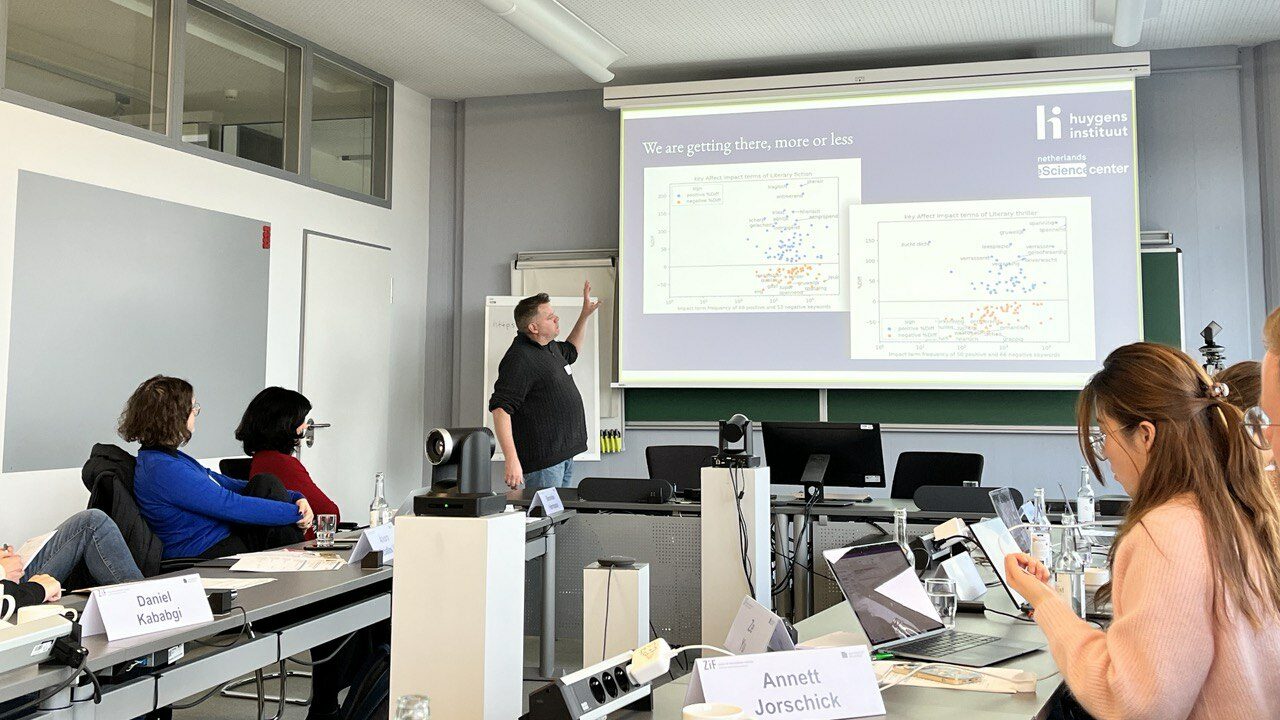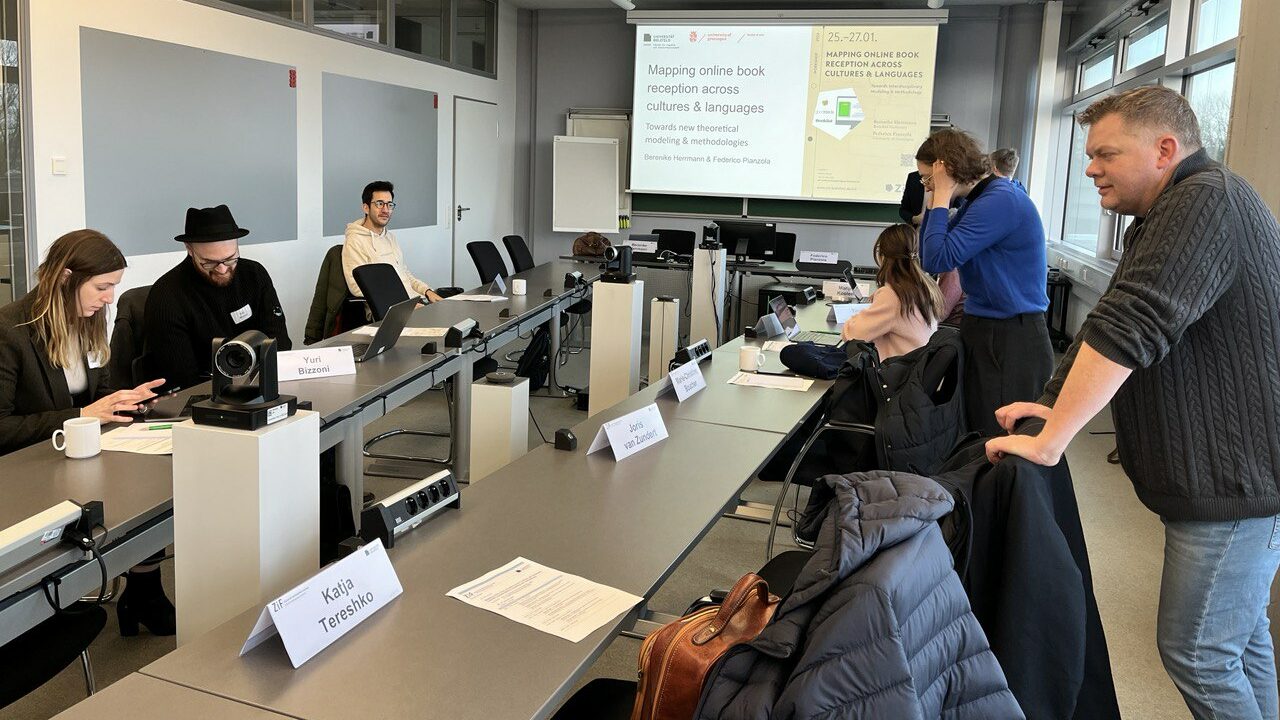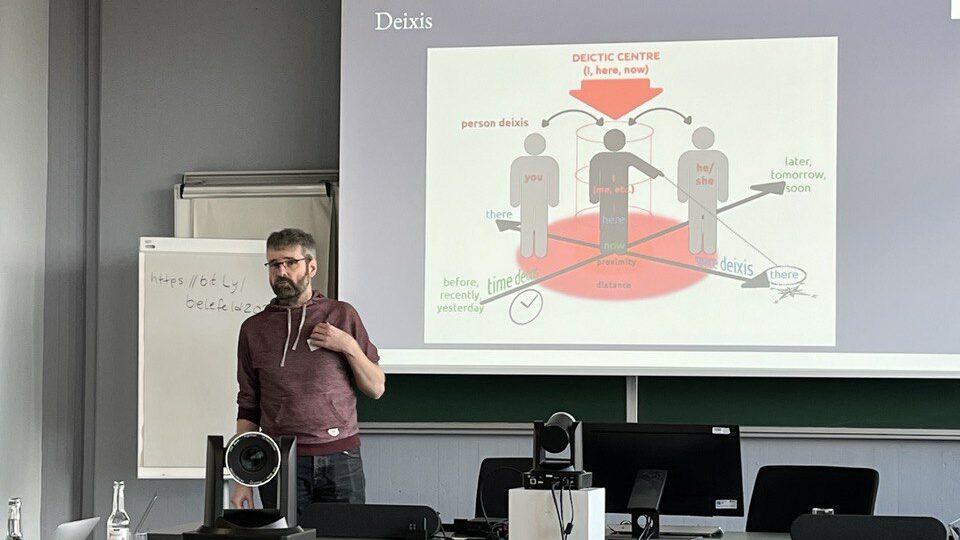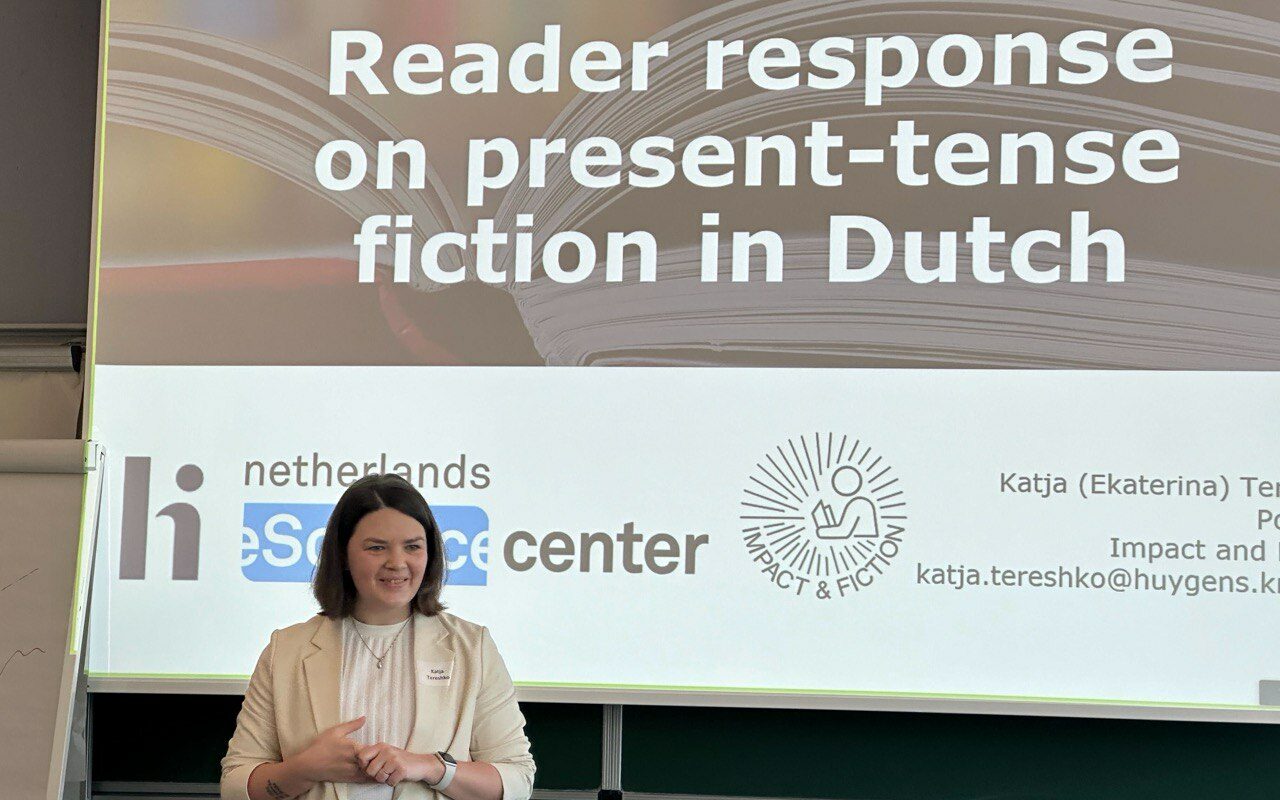ZiF Workshop in Bielefeld. January 2024

As children, we learn a great deal about the world through stories: told, written, shown… As adults, we still seem to have a hunger for stories, which, among other places, we can find in books. Books are a common feature of life, be they paper editions or all versions of digital texts. Surprisingly, however, we do not understand very well how and to what extent the stories told in books affect our lives.
One of the approaches to this riddle we can use is a technological one, but the technology can be very smart, but still not smart enough to tell a good, impactful story. Our colleague Joris van Zundert, in a presentation at the ZiF workshop in Bielefeld, called this the inverted George Lucas paradox. He meant that Lucas knew how he wanted to make Star Wars, but the technical things didn’t work out well enough, and we have a beautiful technology and the challenge is to analyse and synthesise the narrative, which for the most part remains a mystery.

It’s always better to fill the gaps in research with joint efforts, so J. Berenike Herrmann and Federico Pianzola gathered us at the beautiful ZiFcenter in Bielefeld to contribute to literary studies and to be inspired by each other by organising the Workshop “Mapping online book reception across cultures & languages”. Our work would have been many times more difficult without the technological capabilities provided by ZiFCenter and the care of its staff for our stay at the centre.
In addition to the insightful research of literary scholars, we were also enriched by the research of Claire Parnell, an expert in digital publishing, who uses qualitative multi-methods in her research on author-reader relationships on digital platforms such as Wattpad, where readers can comment on the author’s work in progress and thus influence the development of the story. According to Parnell, there are a number of expectations within the romantic genre that, when they are not fulfilled, make readers very angry. Expectations, conventions and recommendations also play a role in star ratings, as some of the participants reported. However, according to Yuerong Hu, rating conventions differ from platform to platform, for example, 4 stars may be perceived as a very good rating on one platform, while it may be perceived as a very bad rating on another platform, where people usually choose between 4 and 5.

The rating is not the only factor that motivates readers to read a book or, to take another example, to listen to a new piece of music. Recommendations play an important role in such decisions, as Anne Mareike Flaswinkel reported. According to her, even in the age of AI, which seems to know a lot, if not everything, about our consumer behaviour, we still tend to listen more to the advice of our friends.

The favour we give to our friends’ recommendations may depend on our emotional attachment to them. These emotions can also be evoked by a literary text, but we face some challenges in measuring them, which was also discussed during the workshop from different perspectives, from psychological (Jana Lüdtke) to computational (Simone Rebora). It is worth noting that there were many more topics and interesting presentations and discussions at this workshop. On the Impact and Fiction side, there were three presentations and a hacking session. During the latter, Joris van Zundert and Marijn Koolen gave the participants hands-on experience in comparing the use of personal pronouns in book reviews written in different languages. In addition, Marijn Koolen reported on the different types of readers reflected in Dutch online book reviews, Joris van Zundert claimed to find ways to connect the text of novels and the texts of reviews in order to delve deeper into the impact of the former, and I presented my research on the impact of narrative tense on readers.

The three days in Bielefeld inspired us to continue our research and to collaborate more, so we have submitted a proposal for a follow-up workshop in 2025. We hope it will be accepted.
